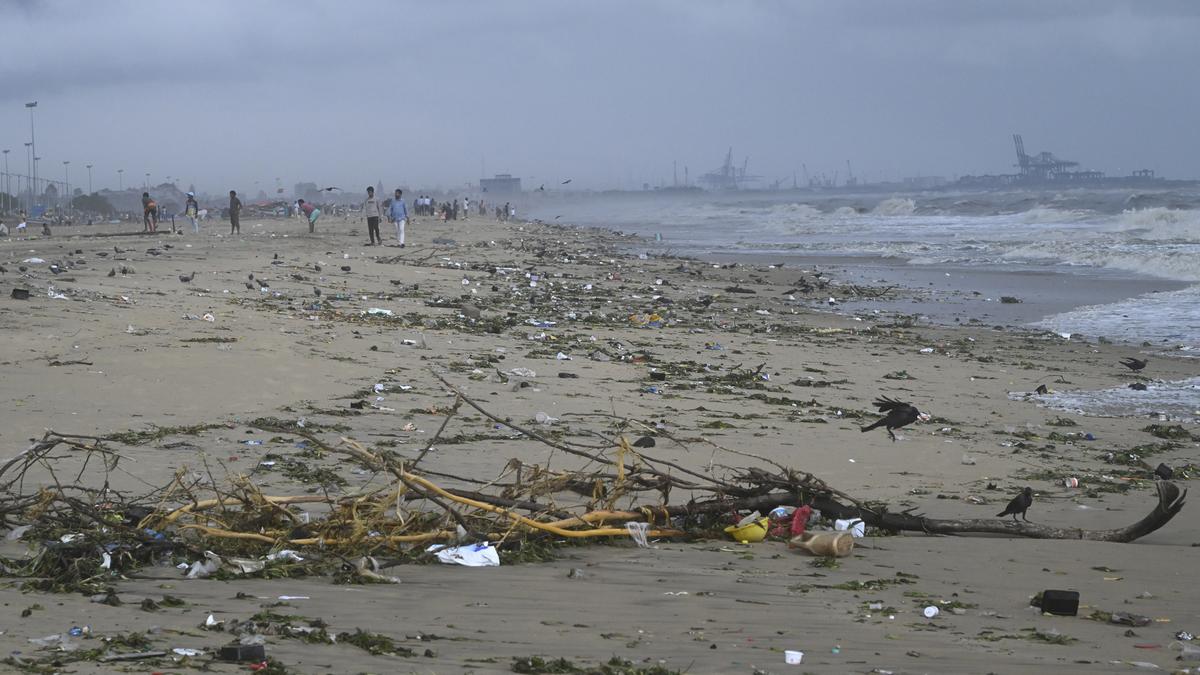
Waste management during monsoon
The Hindu
It is that time of year when Greater Chennai Corporation has to cope with an increased load of garbage, largely on account of organic waste coming in from fallen trees
Greater Chennai Corporation recently deployed an army of workers to clear more than 7,000 metric tonnes of garbage after Cyclone Fengal made landfall on December 1. Some volunteer groups are still combing the sands of the beaches for plastic waste.
Not a surprise as heavy rains and strong winds always pose an additional challenge to the city administration as the percentage of garbage generated increases, largely due to organic waste from fallen trees.
As close to 60 percent of waste generated in Chennai is biodegradable, much of the city’s solid waste problems can be solved if this segment is managed effectively. But that is easier said than done.
Composting units have their job cut out as high humidity level and other environmental factors delay organic matter from decomposing leading to a foul smell. There is also the concern of rainwater seeping into the composting units that hinders the process further.
Certain zonal officers The Hindu spoke to say the composting units witness minimal activity as segregation and drying are difficult during rainy season.
Focus on bio CNG
The superintending engineer, Solid Waste Management, GCC, says since bio CNG (compressed natural gas) plants started functioning in the city from this year dependence on micro composting centres (MCC) has reduced. Currently, there are two bio CNG systems functioning in Madhavaram and Chetpet, and plans are on to open five more at other localities in the city.

The Karnataka government has drafted a comprehensive master plan for the integrated development of Kukke Subrahmanya temple, the State’s highest revenue-generating temple managed by the Hindu Religious Institutions and Charitable Endowments Department. The redevelopment initiative is estimated to cost around ₹254 crore and aims to enhance infrastructure and facilities for devotees.












